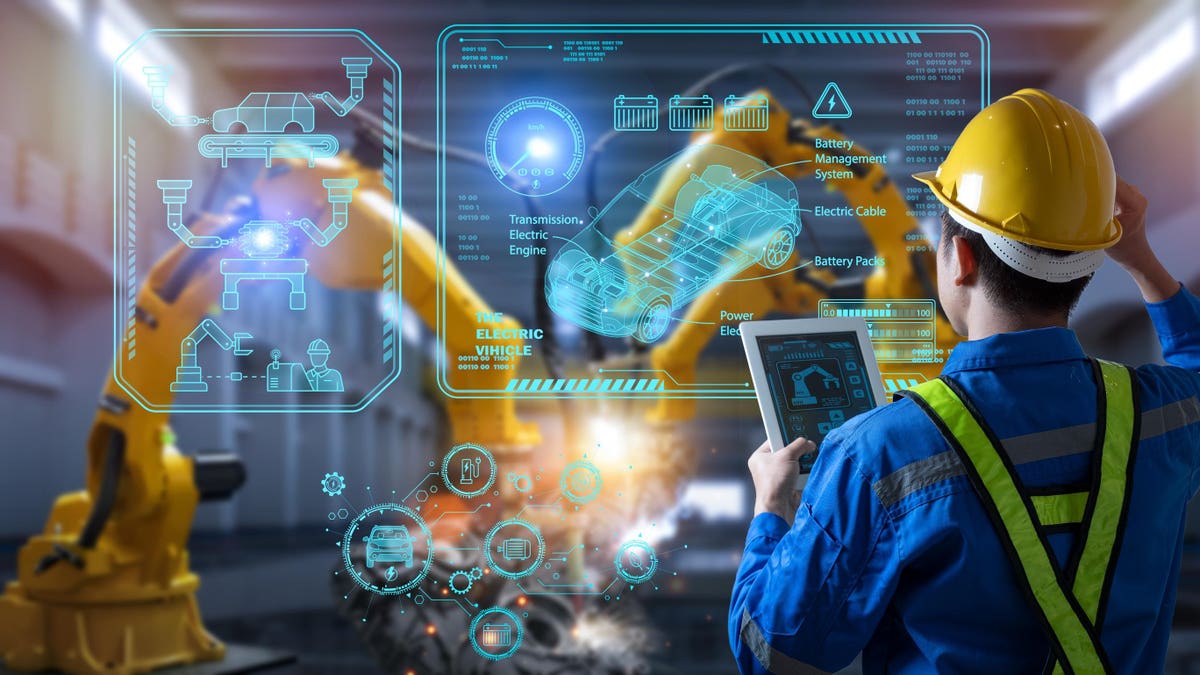Austin Ambrozi is the Co-Founder and COO of Doxci, an AI company that helps organizations put their paperwork on autopilot.
Artificial intelligence (AI) has brought changes to the world that are impossible to ignore, signalling a new era of technological advancement. These changes highlight the immense potential for collaboration between humans and AI. Rather than fearing the rise of AI, it’s important that we consider the possible future that harnesses unique strengths of both humans and AI to drive innovation, productivity and societal progress.
The Power Of Human-AI Collaboration
While AI has made remarkable strides in automating routine tasks, its true potential is realized when combined with human intelligence. Humans possess complex cognitive abilities that machines have been unable to match, including creativity, emotional intelligence and critical thinking. By integrating these human traits with AI’s computational power, speed and scalability, we can achieve outcomes that neither humans nor AI could attain on their own.
Enhancing Decision-Making With AI
One of the most significant advantages of AI lies in its ability to rapidly process vast amounts of data and uncover patterns and trends that may otherwise go undetected by humans. This presents a remarkable opportunity for businesses to enhance their decision-making processes by leveraging AI algorithms.
However, it is crucial to remember that AI should never replace human judgment. Instead, consider viewing AI as a tool that enriches human decision-making by providing valuable insights and data-driven recommendations that humans would have otherwise gone without. As long as organizations can carefully evaluate these insights—taking into account ethical, social and contextual factors before making informed choices—I believe the end result will be a net-positive for humanity’s decision-making.
Creating New Opportunities For Skilled Labor
Based on my own experiences working with AI, I do not agree with the popular concern that the rise of AI means the end of the human labor market. Instead, it can open up new possibilities for the workforce to upskill and adapt to roles that align with the evolving technological landscape. As AI takes over mundane and repetitive tasks, your human workforce can redirect their focus toward higher-level activities that demand creativity, problem-solving and strategic thinking. Embracing this transition requires a commitment to lifelong learning and a willingness to acquire new skills to remain relevant in an AI-driven world.
Embracing AI Ethics And Responsibility
The immense power of AI comes with great responsibility. As we integrate AI into various aspects of our lives, establishing ethical guidelines and regulatory frameworks is crucial for ensuring responsible AI development and deployment. Addressing bias, transparency and accountability will be necessary to prevent inadvertent discrimination or harmful consequences. Collaborative efforts between companies and policymakers are needed to determine best ethical practices, maintain privacy and safeguard against the misuse of AI technology.
Nurturing AI-Human Collaboration
To enable effective collaboration between humans and AI, organizations must facilitate a culture that embraces change, innovation and continuous learning. Developing AI literacy across all levels of your workforce, encouraging interdisciplinary collaboration and creating an environment where humans and AI work hand in hand are essential steps. By adopting collaboration tools, providing training programs and promoting open lines of communication, you can facilitate a symbiotic relationship within your company that enhances productivity, improves decision-making and promotes the well-being of your workforce.
The Future Of Human-AI Symbiosis
The potential for collaboration between humans and AI extends across multiple domains, shaping a promising future. In healthcare, AI’s ability to process medical data and assist in diagnostics enables more accurate and personalized treatments. In transportation and logistics, AI-powered algorithms can optimize routes, reduce fuel consumption and cut down on carbon emissions. In education, AI can facilitate personalized learning experiences with tailored content and guidance for students.
These are just a few examples of how human-AI collaboration can lead to transformative change. It is crucial to recognize that AI is not a replacement for human intelligence, but rather a powerful tool that can augment and amplify our capabilities. By embracing the possibilities that arise from human-AI collaboration, adapting to the changing landscape and upholding ethical practices, we can pave the way for a smarter, more prosperous future.
Forbes Business Council is the foremost growth and networking organization for business owners and leaders. Do I qualify?
Read the full article here





